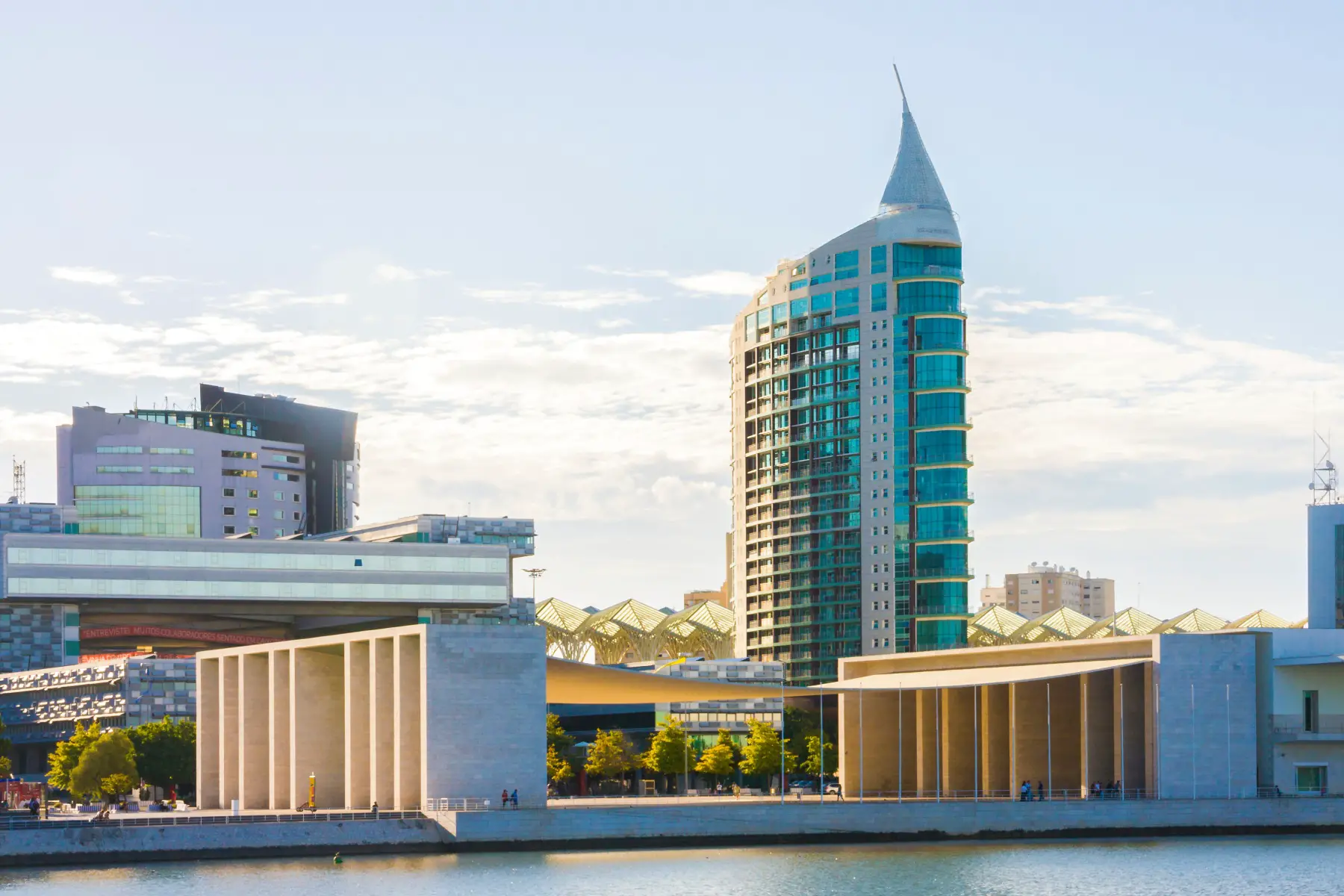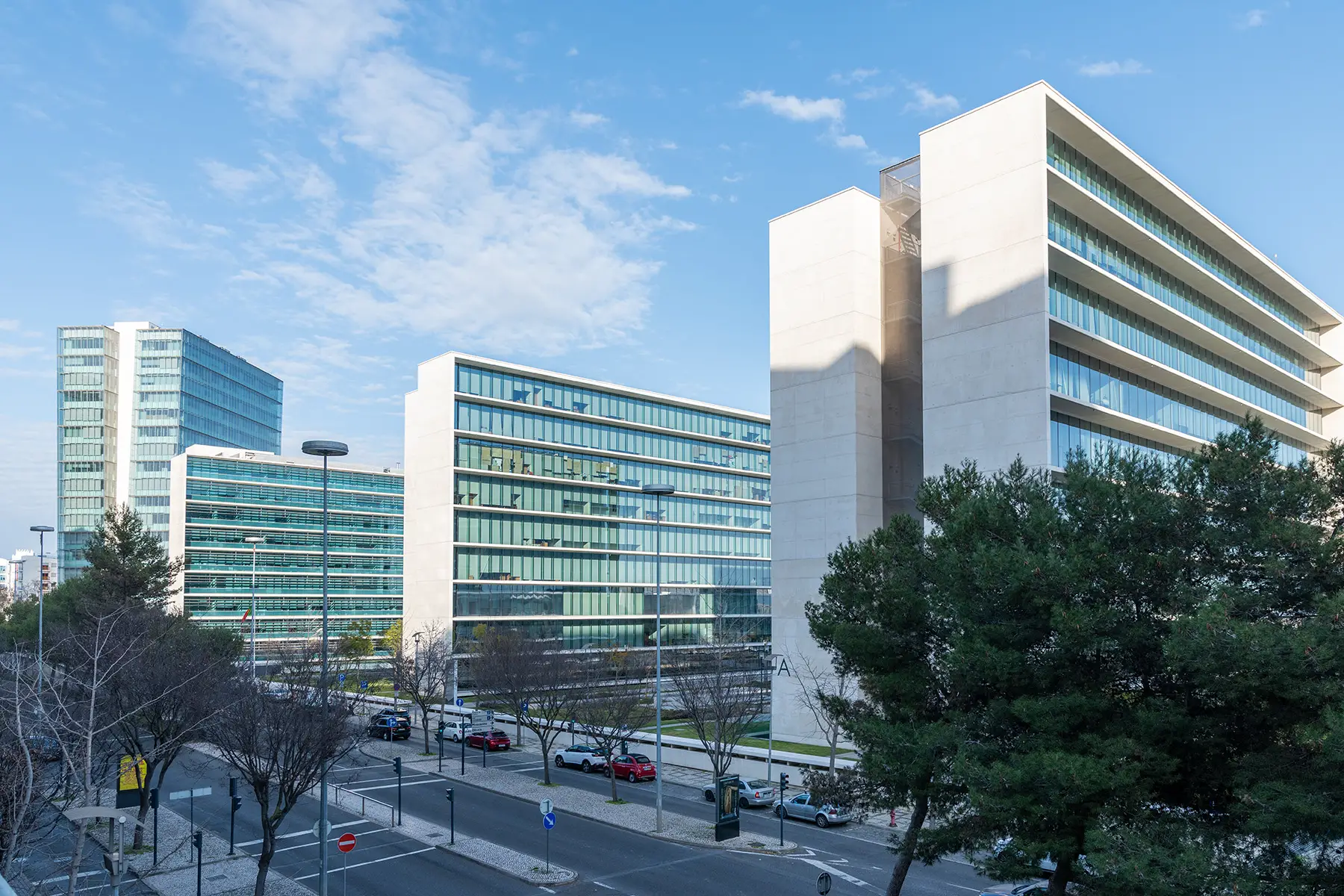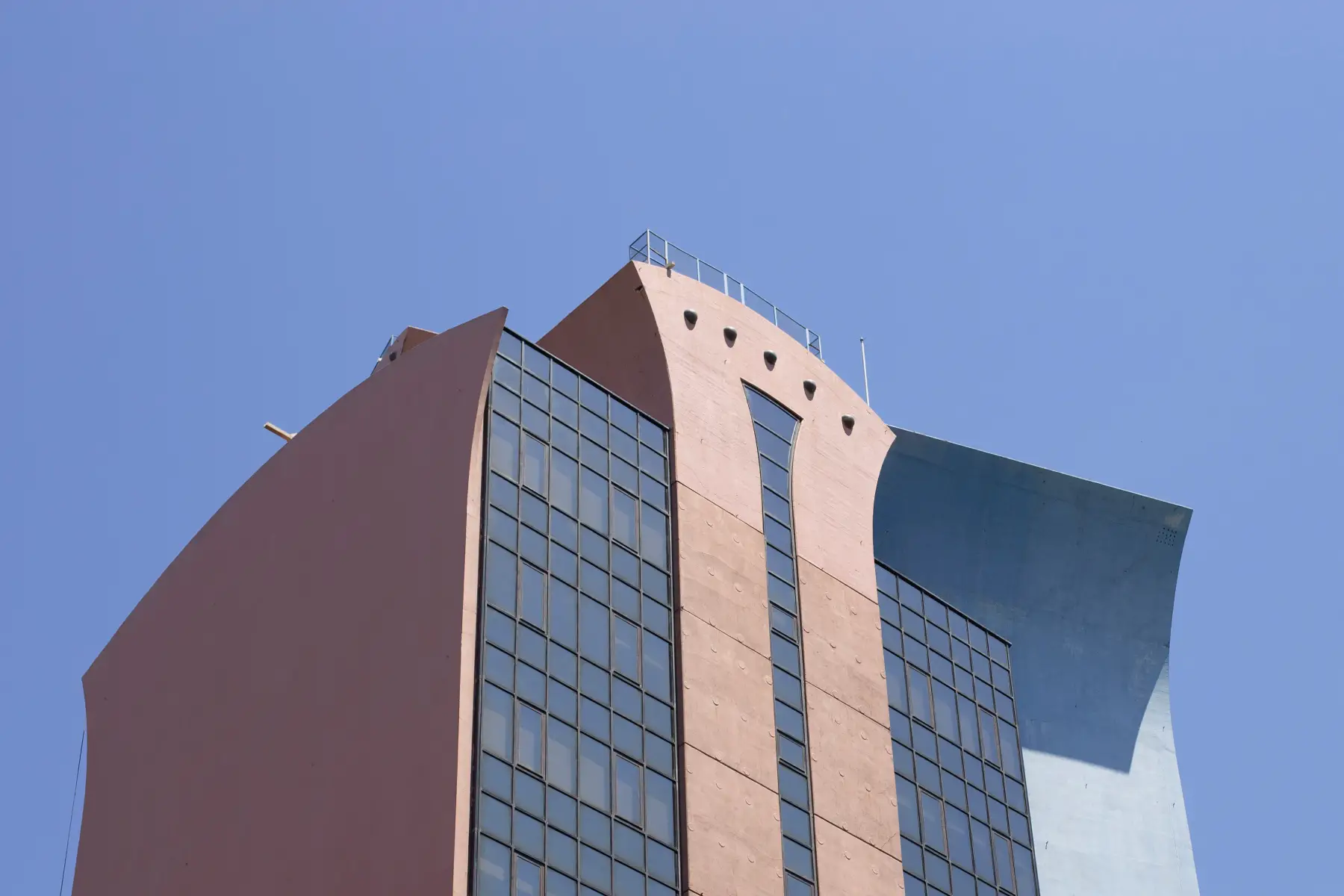Whether you are looking for a job in Portugal or want to start your own business there, understanding the local business culture is key to your success. Generally speaking, the Portuguese are a relaxed bunch, and that goes for business too. Indeed, many companies are flexible when it comes to schedules, deadlines, and annual leave. On the other hand, when it comes to business etiquette, there are certain unspoken rules regarding how to behave and communicate with clients and colleagues.
So, to help you familiarize yourself with Portuguese business culture, and avoid getting caught off guard, this article includes the following information:
- How is the business landscape in Portugal?
- Business culture in Portugal
- What is the work-life balance in Portugal?
- Business structure and hierarchy
- How diverse is the workplace in Portugal?
- Is there gender equality in the workplace?
- Conducting business in Portugal
- Portuguese business etiquette
- Do employees get social security?
- How do local businesses support the community?
- Business corruption and fraud
- Useful resources
Bordr
Start your Portuguese adventure with Bordr. They offer a streamlined online application process for your NIF and Portuguese bank account, so you can get set up quickly in Portugal, and their website has answers to many questions you might have. Contact Bordr to simplify your transition to Portugal.
How is the business landscape in Portugal?
The top industries in Portugal include tourism and hospitality, manufacturing, and agriculture. The country is also the leading exporter of cork and produces more than 60% of the world’s supply. Cars, refined petroleum, and leather footwear are also among the country’s top exports.
The Portuguese economy was on a growing trajectory before the COVID-19 pandemic hit. The country’s GDP experienced a decline of 8.4% during this time, which slowly rebounded, largely thanks to tourism. Nevertheless, Portugal’s aging population, paired with an exodus of young workers, may hinder its future growth.

As a result, the local government has introduced several measures to encourage entrepreneurship throughout the country. Most of the incentives cover areas such as innovation, technology, and sustainability. Moreover, new visa programs, such as the digital nomad visa and the StartUP Visa, are attracting a new wave of foreign investment.
Although only 2% of companies in Portugal were foreign-owned in 2020, they contributed heavily to the local economy. Indeed, they employed 18% of the national workforce and accounted for 28.4% of the total added value.
Business culture in Portugal
Similar to other southern European countries, Portugal has a fairly laid-back business culture. People generally place an emphasis on building relationships, which can take some time. As a result, you will often have several meetings before reaching an agreement or closing a deal. The Portuguese also tend to have a relaxed approach towards punctuality and deadlines, which can be frustrating if you don’t know the local etiquette.
While there are common cultural values across the country, the work atmosphere varies depending on the sector. For example, industries such as finance, law, and government tend to have more hierarchical structures, whereas startups and creative businesses are often more casual.
Notably, although English is widely spoken in business interactions in Portugal, learning Portuguese can be helpful when it comes to dealing with local suppliers and clients.
What is the work-life balance in Portugal?
Despite the seemingly relaxed lifestyle in Portugal, people tend to spend a lot of time at work. Indeed, in 2022, the country had one of the highest percentages of employees working long hours in the EU. While a typical workweek is around 40 hours, 9.4% of Portuguese were working an extra 9 hours.

However, the COVID-19 pandemic increased awareness of the value of work-life balance as more employees started working remotely. In 2021, Portugal released a new labor law preventing employers from contacting staff members outside of working hours. And more recently, the country started testing a four-day workweek as a way to reduce stress and improve the mental health of workers.
Working hours and leave
A typical work day in Portugal begins at 9:00 and ends at 18:00. However, some businesses, such as shops or restaurants, may open and close later. Full-time workers have the right to a one-hour lunch break, although this can often take longer, especially if you go to a restaurant.
The Portuguese tend to be relatively flexible when it comes to punctuality. As a result, meetings can often start late, and deadlines are frequently extended. That said, every company is different, so if you are just starting out, it is best to be on time.
Remote working (teletrabalho) is still a relatively new concept in Portugal. However, the impact of the COVID-19 pandemic led the government to introduce several laws to enable employees to work outside of the office. For instance, parents now have the right to work from home if they have a child under eight years old. That said, while some companies have fully converted to a work-from-home setup, others still want employees to show up at the office.
Under Portuguese labor law, companies must grant workers at least 22 days of paid holiday a year. There are also many public holidays where workers can take time off. Moreover, parents are entitled to extra benefits, including flexible work arrangements and access to parental leave.
Business structure and hierarchy
Most businesses in Portugal follow a hierarchical model and the CEO (director executivo) is typically the one to make the decisions.
Below the CEO are several departments with individual managers in areas such as finance, marketing, sales, and human resources. While traditional organizations tend to honor age and seniority, many startups encourage employees to offer their opinions.

Naturally, the level of formality and leadership varies depending on the sector. For instance, while some creative industries tend to have a relaxed atmosphere, others such as finance and law are more formal.
How diverse is the workplace in Portugal?
Portugal is becoming a popular destination for expats searching for a more relaxed lifestyle. In 2020, the country received around 80,000 immigrants, of which 40.7% came looking for work.
Foreign workers have the same rights as Portuguese ones. The Portuguese Constitution (Constituição da República Portuguesa) and Labor Code (Código do Trabalho) also prohibit discrimination based on age, disability, ethnicity, gender, marital status, race, religion, and sexual orientation.
The Portuguese law also has quotas for disabled people. Medium-sized companies that employ between 75 and 249 workers must reserve at least 1% of their positions for those with disabilities. The number then increases to 2% for companies with more than 250 workers.
In 2021, around 76.9% of foreigners were part of Portugal’s labor force. This was higher than the Organisation for Economic Co-operation and Development (OECD) average of 69.2%. However, while the country has strived to have a more inclusive workplace, you can still experience disparities between genders and nationalities. If you experience discrimination at work, you can complain to the Autoridade para as Condições do Trabalho (Authority for Working Conditions – ACT).
Is there gender equality in the workplace?
Portugal currently ranks 15th in the EU on the Gender Equality Index, representing an increase of four places since 2010. Indeed, the country has made significant efforts in the last decade to improve gender equality in the workplace.
Although most companies don’t have a specific quota for female workers, Portugal reviewed its Law on Parity (Lei da Paridade) in 2019 to establish a minimum threshold of 40% of women in political and public administration positions, which took effect immediately.
The Portuguese Labor Code also prohibits gender discrimination and grants the right to equal treatment and opportunities.
Female representation in the workplace
Portugal was under a dictatorship for nearly 50 years until it got abolished in 1974. During that period, many women were forced to stay at home and carry out domestic work.
However, half a century on and 52.6% of women in the country are working, compared to 60.9% of men. But despite an increase of women in the workplace, there is still a gap in executive positions. Indeed, according to Eurostat, only 36% of women in Portugal took on managerial roles in 2020.

In contrast, the country has a high number of female business owners (32.2%), placing it ahead of countries like Spain and Italy. Women also represent about a third of the MPs in parliament.
Most female employees work in areas like hospitality, healthcare, and education. However, they are often under-represented in fields such as science or finance.
Does Portugal have a gender pay gap?
The current national minimum wage in Portugal is €760 per month, and about a quarter of people in the country receive the minimum salary; most of which are precarious workers, women, or young people.
Despite the introduction of a law to ensure equal pay between men and women in 2019, companies in Portugal are still registering a huge gender pay gap. Indeed, men earned up to 11.9% more than women in 2021. However, this was below the EU average of 12.7%.
To help promote salary transparency, the Portuguese Women in Tech community has created a public database where people can share their average income.
Attitudes to women in the workplace
While Portugal has made progress in promoting gender equality in the workplace, some challenges remain. Beyond the pay gap, there are still ingrained stereotypes that women are less suited for certain roles, which can affect career progression.
For instance, pregnant women are often removed from leadership positions. Other examples of everyday sexism in Portugal include being asked if you are planning to have children in an interview and comments about appearance and hormonal states.
According to the Comissão para a Igualdade no Trabalho e no Emprego (Commission for Equality In Labor And Employment – CITE), this inequality tends to be more evident in areas like health and education, where there are more female employees.
A 2022 inquiry by the Associação Portuguesa de Apoio à Vítima (Portuguese Victim Support Association – APAV) reported that 18% of people felt sexually harassed at work. The majority of victims were women. Such behavior is punishable by Portuguese law, which gives the victim the right to claim compensation for material and moral damages.
If you have been harassed at work, you can file a complaint with the Autoridade para as Condições do Trabalho (Authority for Working Conditions – ACT) for private companies or the Inspeção-Geral de Finanças (General Inspectorate of Finance – IGF) for public companies.
Conducting business in Portugal
Business strategy, planning, and decision-making
Most organizations in Portugal will have a business plan, which includes reviewing targets at the end of each year. Large companies often have a long-term strategy plan, while startups usually focus on short-term goals.
Business decisions tend to be made by top-level executives in collaboration with stakeholders behind closed doors. For the most part, people focus on their own tasks and rely on a manager to direct them. While employee initiative is encouraged, most people will raise any issues or discuss their ideas with their supervisor.
Meetings and negotiations
Business meetings and negotiations tend to be pretty informal in Portugal. Indeed, it is not uncommon to meet clients for a coffee or a meal before making a deal.
Notably, meetings are not necessarily about reaching a consensus but rather providing a forum in which people can voice their opinion. Because of this, there is usually no formal protocol and agendas are merely used to introduce or raise a topic, rather than serve as a schedule. It is also common for meetings to start and run late.

The Portuguese prefer to work with someone they trust. Therefore, face-to-face meetings are preferable over conference calls and emails. In contrast to their neighbors on the Iberian Peninsula – the Spanish – people in Portugal use fewer gestures when talking. Moreover, they tend to remain calm during negotiations and avoid overly emotional outbursts.
Appointments should be made about two weeks in advance, and it is advisable to re-confirm them a couple of days before the meeting. You should also refrain from scheduling appointments during August, which is a busy holiday period, as well as the days before and between Christmas and New Year.
Networking
Building relationships is a crucial element of the Portuguese business culture, and networking is encouraged among individuals and companies, as it helps to establish trust and gain industry insight.
Portugal hosts several networking events threoughout the year; from small monthly gatherings to large-scale festivals. Below are some of the top trade shows in the country:
- Bolsa de Turismo de Lisboa (BTL): A travel and tourism fair that brings together professionals from the industry, including destination representatives, airlines, and tour operators
- Feira Internacional de Artesanato (FIA): An international fair that celebrates traditional craftsmanship from Portugal and beyond. Artisans have the chance to exhibit their work and promote cultural exchange.
- Web Summit: One of the world’s largest technology conferences held annually in Lisbon. It features panel discussions on emerging trends, workshops, and plenty of networking opportunities.
Many international networks are also represented in Portugal. These include the Professional Women’s Network (in Lisbon) and Creative Mornings (in Lisbon and Porto). You can also find several networking groups on Meetup.
Business socializing
Long lunches and restaurant dinners are part of Portuguese business culture. However, it is important that you distinguish between social and business situations as it is not customary to discuss business matters in a social context, unless the host raises the subject.
Portuguese business etiquette
Communication
A firm handshake is the most typical greeting when doing business in Portugal. A kiss on both cheeks is also common, but more between close colleagues.
Naturally, the level of formality varies depending on the setting and the people you are addressing. For instance, while you can often use the second-person tu to communicate with a colleague, conversations with older people or high-profile figures tend to be more formal. That means using the third-person você, along with titles like Senhor (Mr.) or Senhora (Mrs./Ms), followed by the first or last name.

It is also common to say Doutor (Dr.) or Doutora (Dra.) when approaching people in areas like law or politics. However, as the relationship develops, you can switch to a first-name basis, after asking for permission to do so.
It is essential to maintain good eye contact during a conversation, as this shows that you are interested in what the other person has to say. However, you should avoid any excessive gestures that may invade their personal space. That said, nodding and smiling can be used to convey agreement.
Some common topics of conversation might include culture, soccer, and current events.
Dress code
As you might expect, business attire in Portugal varies depending on the industry. In traditional sectors such as banking, for instance, it is common to wear a full suit to work.
Men typically wear tailored trousers, a shirt, and a tie, while women can choose between dresses, skirts, or trousers paired with a shirt. Wearing heels is also common practice.
In more creative sectors, on the other hand, the dress code tends to be more casual and relaxed. That said, it is still better to dress more formally for initial business meetings.
Gifts
Giving gifts isn’t common in Portuguese business culture. However, there are certain occasions when you should bring one.
For example, if someone invites you to their home, you should bring a small gift for the host or hostess, such as a bottle of wine or flowers. During festive seasons, like Christmas, it is also common to exchange gifts between coworkers.
Some people may also offer gifts at the end of a successful negotiation or to say thank you. However, you should avoid giving expensive gifts, as the recipient may view them as a bribe.
Business cards
Exchanging business cards is quite common in Portugal. Any staff member can have a business card, but it is especially important for individuals dealing with clients, such as salespeople, managers, and business owners. Typically, you exchange cards during meetings, conferences, or networking events.
A business card usually contains your contact information (phone and email), full name, job title, company name, address, website, and social media handles. Notably, while business cards are still prevalent, it is also becoming increasingly common to exchange contact information through mobile phones or networking apps.
Do employees get social security?
If you are working in Portugal or own a company there, you must contribute to the social security system. The rates vary from 11% for employers, 23.75% for companies, and 21.4% for self-employed individuals.
These contributions give you access to the healthcare system, unemployment benefits, pensions, and maternity and paternity leave. Notably, some larger companies may also offer additional perks such as occupational pensions or private health insurance.
Companies are typically responsible for covering their employees’ monthly social security payments. Self-employed workers, however, have to arrange this themselves by submitting the declaração trimestral (a trimestral income declaration). This gives them access to similar social benefits, including pensions and maternity leave.
How do local businesses support the community?
Corporate social responsibility (CSR) initiatives are slowly gaining traction in Portugal. Companies are encouraged to give back to the community and manage their environmental impact. Many businesses support local organizations through donations or employee volunteering programs.
In 2022, Merco, a Corporate Reputation Business Monitor, ranked the most socially responsible companies in Portugal. The top three were Grupo Nabeiro (owner of Delta coffee), Sonae (holder of many shopping centers), and EDP (the main energy supplier in Portugal).
Business corruption and fraud
According to a Eurobarometer survey in 2022, around 85% of companies in Portugal believed that corruption was a common practice in the country. This is well above the EU average of 63%.
Some common types of corruption in Portugal include abuse of power, bribery, embezzlement, and money laundering. In recent years, the country has witnessed a few corruption scandals. Among the most notable cases are the “Face Oculta” (money-laundering and corporate tax evasion), “Operação Marquês” (alleged corruption by high-ranking officials), and the “Operação Cashball” (corruption in professional football).
In 2022, Portugal implemented a new law on corruption as part of the National Anti-Corruption Strategy (Estratégia Nacional Anticorrupção). The legislation aims to improve company practices surrounding transparency, as well as prevent and detect any signs of corruption or fraud.
If you suspect corruption or fraud in your company, you can report it to the Judiciary Police, the Public Ministry, or any other judicial or police authority.
Useful resources
- Authority for Working Conditions (ACT) – deals with discrimination and harassment complaints
- Commission for Equality In Labor And Employment, CITE – deals with gender inequality at work and parental rights issues
- Diário da República Eletrónico (Electronic Journal of the Republic) – the Portuguese Labor Code as published on the national legislation website
- ePortugal – offers guidance on Portuguese business culture and funding initiatives







